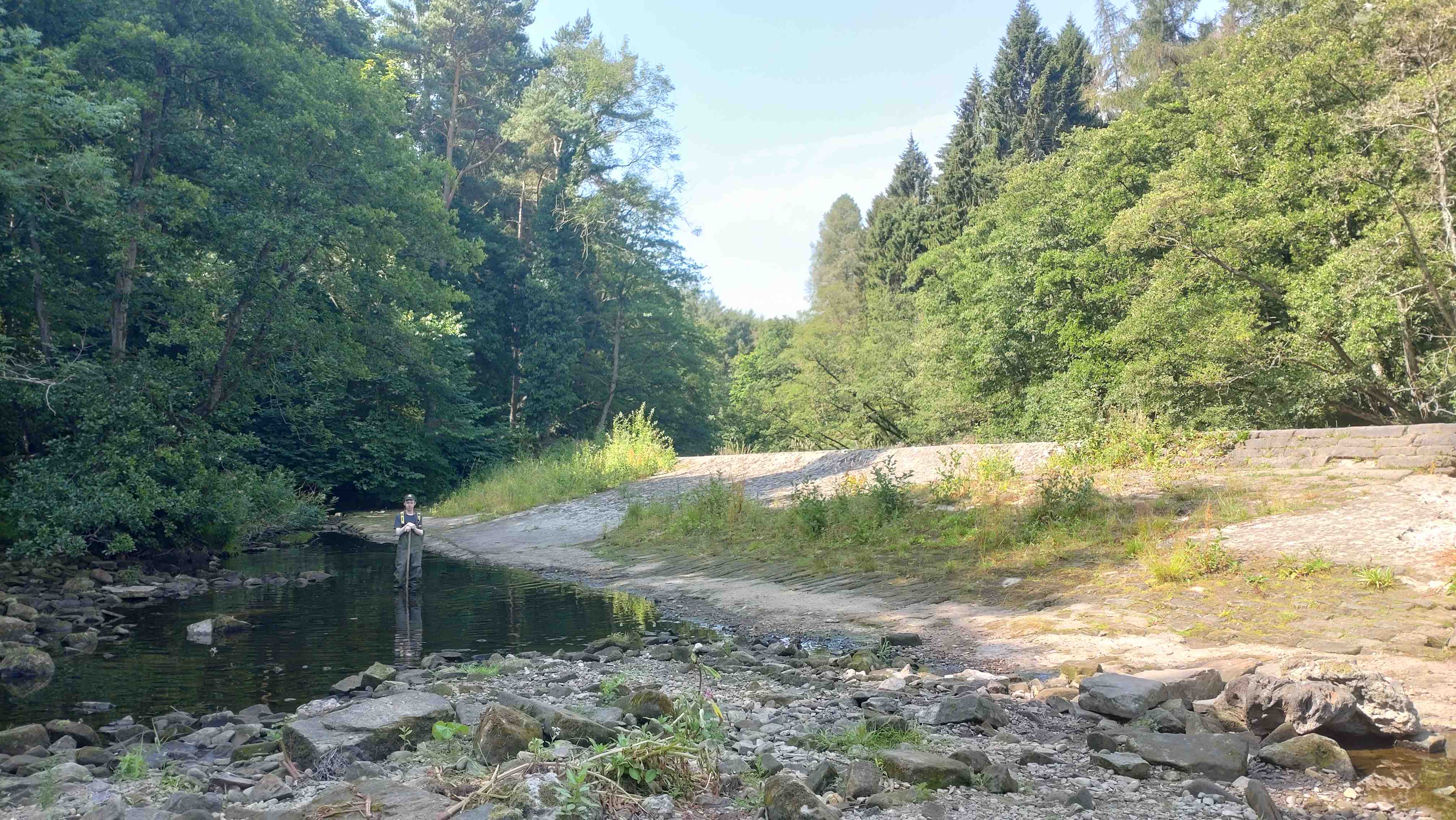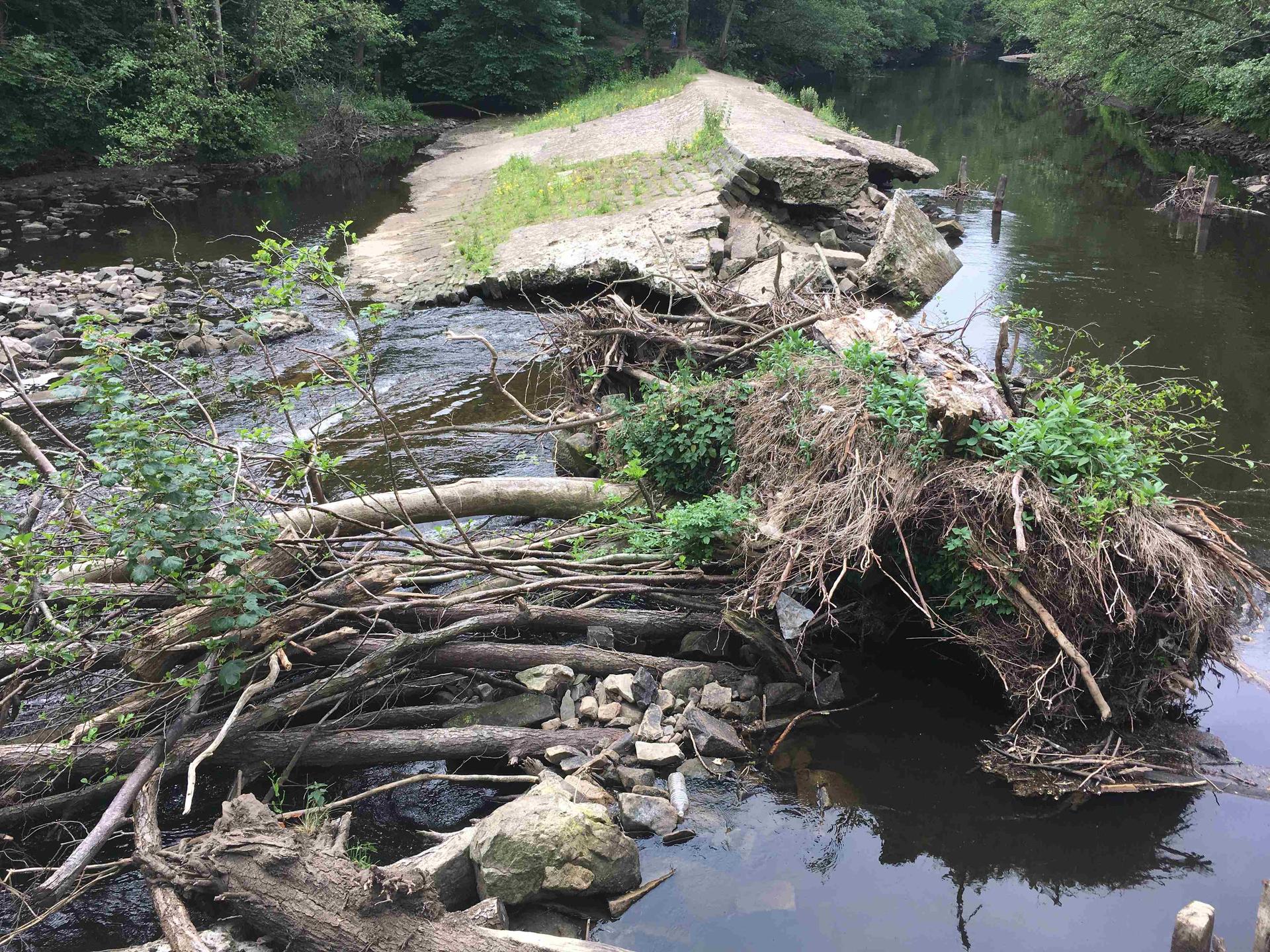Subscribe to trusted local news
In a time of both misinformation and too much information, quality journalism is more crucial than ever. By subscribing, you can help us get the story right.
- Subscription costs less than £1 a week with an annual plan.
Already a subscriber? Log in here.
25
Jul 2022
UK's largest weir removal project begins on River Nidd at Scotton

The largest weir removal project ever in the UK has begun on the River Nidd at Scotton.
The scheme, which costs about 80,000 euros, will open up another 18km of river to migratory fish such as salmon, sea trout and European eel.
If Nidd tributaries are also included then 35km of rivers will be made available for salmon and sea trout spawning.
The project is being led by river conservation charity the Wild Trout Trust and funded by the European Open Rivers Programme – a grant-giving organisation dedicated to restoring rivers.
It started last week with the creation of an access ramp down to the weir and is expected to get underway properly this week. Work removing the dam is expected to last up to two weeks before further work restoring the bank takes place.
Scotton Weir is at the entrance to Nidd Gorge, a designated Area of Outstanding Natural Beauty.
It was built at the end of the 18th century to power the nearby mill. At 75m wide and 4m high, it is thought to be the largest weir removal project ever in the UK.
The weir breached in the floods of 2019 so is already partly demolished. Leaving it to disintegrate gradually over time would have reduced the risk of bankside damage.
Removing Scotton Weir will benefit more than just migratory fish. All fish move up and downstream to some extent as part of their life cycles and the weir removal will help to restore natural processes to the river.
Currently only 16% of rivers are rated as being in ‘good’ condition by the EU Water Framework Directive. A significant cause of failure is man-made barriers interrupting a river’s flow, such as Scotton Weir on the Nidd.
Jonathan Grey, a part-time professor in practice at Lancaster University who is project managing the Scotton Weir removal for the Wild Trout Trust, said:

The weir is already damaged.
Prof Grey said although it was not certain that salmon or sea trout got as far as Scotton Weir, nearby surveys suggested it was "very likely".
He added:
Dr Marie Taylor, operations director for the Yorkshire Dales Rivers Trust, said:
0